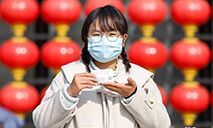What’s the use of West-donated COVID-19 vaccines to Africa when millions of doses expire?
At a time when global cooperation and help are most needed, many countries on the African continent are facing "vaccine nationalism" from the West. Several countries have been forced to discard more than 3 million doses of the COVID-19 vaccines because the vaccines expired within months of being received as donations.
The situation is "regrettable" and "heartbreaking," Africa experts told the Global Times.
The vaccine nationalist mentality in Western countries is the number one cause of vaccine waste in Africa, the experts said. Western countries stockpile excess vaccines and "donate" them to African countries when they are about to expire, for political show. They don't care about whether Africa lacks vaccine storage conditions and primary care services, and these unusable vaccines drain the expectations and budgets of African countries.
Heartbreaking waste
The WHO Regional Office of Africa confirmed to the Global Times that vaccine discard in African countries is a noted situation. On December 22, 2021, the Nigerian government destroyed more than 1.06 million doses of AstraZeneca vaccine at a landfill on the outskirts of the capital city Abuja. According to media reports, these vaccines were part of the more than 2.59 million doses Nigeria received from Europe in October 2021, and had expired in November.
The destruction of these vaccines followed reports that vaccines received from Europe through the COVID-19 Vaccines Global Access program (COVAX) arrived in Nigeria with only four to six weeks of viability remaining, making them unusable for the timely inoculation of populations in the African country.
Concerning the heartbreaking news that more than 1 million doses of vaccines would be destroyed in a country with less than a 4 percent full vaccination rate, the Nigerian Ministry of Health issued a statement saying that many low- and middle-income countries have experienced similar situations.
The Ministry called on vaccine donors to start the donation process as soon as possible so that recipient countries are able to receive the vaccine with a longer shelf life to avoid wastage.
Nigeria said it is no longer accepting vaccine donations with short, unviable shelf lives.
Nigeria is not the first country to destroy expired vaccines. Senegalese authorities also recently said that 400,000 doses of expired vaccines would be destroyed.
Malawi burned 20,000 doses of expired vaccines in May 2021, and the Democratic Republic of the Congo (DRC) returned 1.3 million doses of vaccines due to expiration.
Malawi, Mozambique, Namibia, South Africa, and Zimbabwe have asked Pfizer, in the last several months, to pause shipments because of challenges with vaccine uptake, according to the company's statement.
The situation is regrettable, especially as Africa remains the least vaccinated continent against COVID-19, Adhere Cavince, a Kenyan scholar, pointed out to the Global Times.
As of the end of 2021, only a worrying 7.5 percent of the continent's 1.3 billion people are fully vaccinated while a few Western countries are stockpiling far more vaccines than they need and are wasting them.
Statistics show the US and its partners have about 240 million doses of vaccines about to expire. And many of these vaccines being used for donations have been criticized as being props in political showmanship.
The act has sparked international concern and discontent.
The COVID-19 Vaccine Procurement Facility, led by the African Vaccine Procurement Trust, the African Center for Disease Control and Prevention, and the WHO, recently issued a statement calling for improvements in the quality of vaccines donated to Africa.
Data from a World Bank study shows that for every month that vaccines are delayed in arriving in Africa, there is a loss of about $13.8 billion in local GDP.
West's 'vaccine nationalism'
Africa's slow pace of vaccination is mainly caused by "vaccine nationalism" of the producing countries that bought much of the global supply, leaving little for Africa, Cavince, the Kenyan scholar on international relations, told the Global Times.
Donation being the major way through which Africa receives vaccines, most donations are a just second thought political decision by developed countries which have seen vaccines nearing expiry shipped to the continent, he said.
His accusations are echoed by many African medical experts and senior officials, who fired at the West's blatant arrogance over the issue.
"We had developed countries that procured these vaccines and hoarded them. At the point they were about to expire, they offered them for donation," condemned Faisal Shuaib, head of Nigeria's National Primary Health Care Development Agency.
South African President Cyril Ramaphosa also accused the developed countries of being "unjust and immoral" by hoarding vaccines needed in poorer nations.
"The greed that they demonstrated is something that is quite disappointing indeed, particularly when they say they are our partners," he said, according to the South African government.
The WHO-led vaccine distribution mechanism has disclosed that the majority of the vaccine donations made to date to African countries have been ad hoc, provided with very short notice, and even shorter shelf lives. The result is that many developing countries don't only fail to receive the much-needed help, but also have to instead become "large-scale vaccine waste treatment plants" for the US and the West.
The West has been ignorant to the fact that many African countries do not have the capacity to rapidly distribute and administer the vaccines, Cavince told the Global Times.
"It is one thing to donate vaccines to Africa and quite another for African citizens to receive them," he said.
Experts familiar with vaccine donation processes noted to the Global Times that considering the time required to administer the vaccines, vaccine donors usually send out the doses several months in advance.
Given the infrastructure and organizational capacity in Africa, the window set aside for vaccine donation can be up to six months, Tao Lina, a Shanghai-based vaccine expert, told the Global Times.
Other reasons considered to have contributed to the current situation in Africa include difficulties in storing vaccines, the lack of supply support, and prevailing attitudes by people toward vaccines.
Light at the end of the tunnel
In order to tackle the current situation, developing countries need to be allowed to manufacture and directly procure vaccines, said South African President Cyril Ramaphosa.
African experts also noted to the Global Times that the only sustainable way to ensure Africa has access to the vaccines it needs is to encourage local production in the continent.
China, picking up the mantle, is already blazing that trail with joint production hubs in Egypt and Morocco. The FOCAC 2021 commitments by China to produce 400 million doses of COVID-19 vaccine in the continent should be emulated by other vaccine-producing countries.
The 400 million doses expected to be co-produced by China and African countries is part of China's 1 billion vaccine donation promise for 2022, which was announced in November 2021, in order to help the continent achieve the AU's target of vaccinating 60 percent of the population by 2022.
China had already provided about 180 million doses of vaccines to Africa as of November 30, 2021, covering almost all African countries. Most of the more than 6 million doses of COVID-19 vaccines administered in Zimbabwe are vaccines developed by Chinese companies.
"Chinese vaccines are the light at the end of the tunnel," said Zimbabwean President Emmerson Mnangagwa.
In Namibia, about 140,000 people have been vaccinated using China's Sinopharm vaccines.
Equatorial Guinea received 100,000 doses of vaccines from China in November 2021, becoming the first West African country to receive a large consignment of vaccines. Vice President Teodoro Nguema Obiang Mangue said that when facing difficulties, "only China has taken us into its heart and extended a helping hand."
In the meantime, medical experts noted that the inactivated vaccines widely used in China require less demanding transport and storage conditions than the mRNA alternative used in the West, and is also more suitable for large-scale use in low- and middle-income countries.
The appeal of the Chinese vaccines for developing countries is obvious, Zha said.
Due to China's mature vaccine technologies, longer shelf lives, and lower requirement for storage and transportation, Chinese-made vaccines are a more preferable choice for many developing countries with relatively weak vaccination infrastructures. This has been reflected in the approval of Chinese vaccines in more than 100 countries.
China has once again demonstrated what the responsibilities of a great power should be in its vaccine donations to Africa, in stark contrast to the arrogance of Western countries, Zhu Weidong, senior research fellow with the Institute of West Asian and African Studies at the Chinese Academy of Social Sciences, said.
"In aiding Africa, China has always emphasized real results that fall into place, and this has been proven once again in this joint fight against the pandemic," Zhu said.
Vaccines from Pfizer, AstraZeneca, and Moderna rely on mRNA technology which needs to be stored at around minus 70 degrees and minus 20 degrees Celsius, respectively. Such a requirement presents a challenge for many African countries, where poor electricity infrastructure cannot support ultra-cold freezers during transport.
Even more, some of the vaccines are shipped without accompanying medical supplies like syringes, which means the recipient countries must make more investments before deployment.
"Expired vaccines have no role in helping Africa achieve its vaccination target of 60 percent by 2022," Cavince said.
In addition, some common infectious diseases, including malaria, continue to plague African countries, leaving many to prioritize immunization against those diseases and put COVID-19 vaccination on the back burner. The lack of infrastructure needed along its vaccine transport chain also drags back vaccination rates, Zha Daojiong, a professor at Peking University who had previously been heard on feedback from African health experts, told the Global Times.
More, people in many African countries, especially Muslim-majority ones, still have vaccine skepticism, and they believe in traditional treatments over vaccines. It is partly due to some Western media's frequent reports over incidences of AstraZeneca vaccination-related deaths, which further added to the skepticism, Zha noted.
Photos
Related Stories
- China's vaccine support benefits Myanmar's COVID-19 fight
- Nearly 2.77 bln COVID-19 vaccine doses administered on Chinese mainland
- Over 2.7 bln COVID-19 vaccine doses administered on Chinese mainland
- 2.67 bln COVID-19 vaccine doses administered on Chinese mainland
- Cambodia receives new batch of Sinovac COVID-19 vaccine from COVAX Facility
Copyright © 2022 People's Daily Online. All Rights Reserved.










